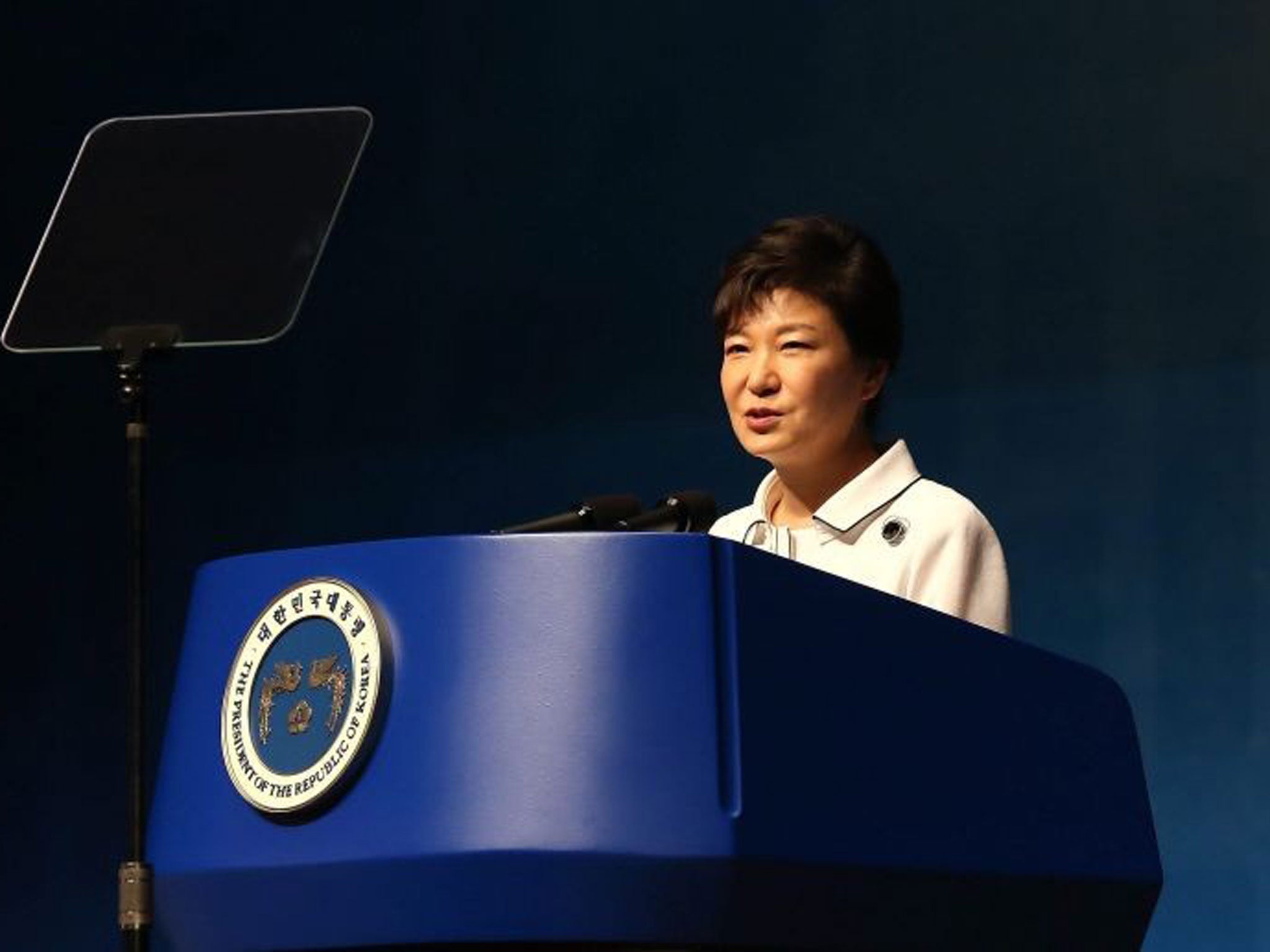President Park Geun-hye calls for war-torn families in North and South Korea to reunite

Your support helps us to tell the story
From reproductive rights to climate change to Big Tech, The Independent is on the ground when the story is developing. Whether it's investigating the financials of Elon Musk's pro-Trump PAC or producing our latest documentary, 'The A Word', which shines a light on the American women fighting for reproductive rights, we know how important it is to parse out the facts from the messaging.
At such a critical moment in US history, we need reporters on the ground. Your donation allows us to keep sending journalists to speak to both sides of the story.
The Independent is trusted by Americans across the entire political spectrum. And unlike many other quality news outlets, we choose not to lock Americans out of our reporting and analysis with paywalls. We believe quality journalism should be available to everyone, paid for by those who can afford it.
Your support makes all the difference.The South Korean president has put forward proposals that the North and South hold a reunion next month for families still separated 60 years after the Korean War.
The call came a day after the two sides made steps towards re-opening a jointly run factory park closed since April.
Many families were separated at the end of the Korean War in 1953 and civilians on both sides have had virtually no contact since. The three-year war ended with a truce and no peace treaty was signed.
About 22,000 families were reunited during a landmark summit where both of Korea's leaders met as part of a major inter-Korean cooperation project in the 2000 to 2010 detente.
But a proposal made in July to discuss resuming the reunions was not put into action.
President Park Geun-hye made her proposal during a speech given to mark Korea's 1945 independence from Japanese colonization.
In a televised speech she said the agreement to reopen the jointly run Kaesong factory park would start a new inter-Korean relationship marked by "co-existence".
"I hope this agreement will help correct wrong practices of the past inter-Korean relations and pave the way for new relations of co-existence," she said.
Park also asked North Korea to jointly construct a peace park in the demilitarized zone in the border.
The negotiators agreed both countries would actively make efforts to resume Kaesong operations, though it was not conclusive and no timetable was given.
The industrial complex in North Korea's third-largest city, Kaesong, had been the last symbol of cooperation from the 2000-2010 detente until Pyongyang halted operations during a torrent of threats earlier this year that included vows of nuclear strikes on Washington and Seoul.
North Korea finally withdrew its 53,000 workers from the factory in April over anger at the expansion of UN Sanctions and growing tensions with the South.
Additional reporting by agencies
Join our commenting forum
Join thought-provoking conversations, follow other Independent readers and see their replies
Comments